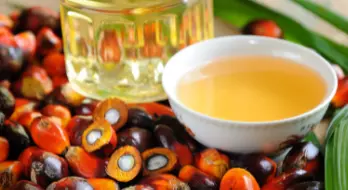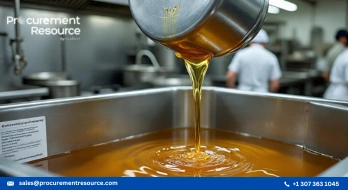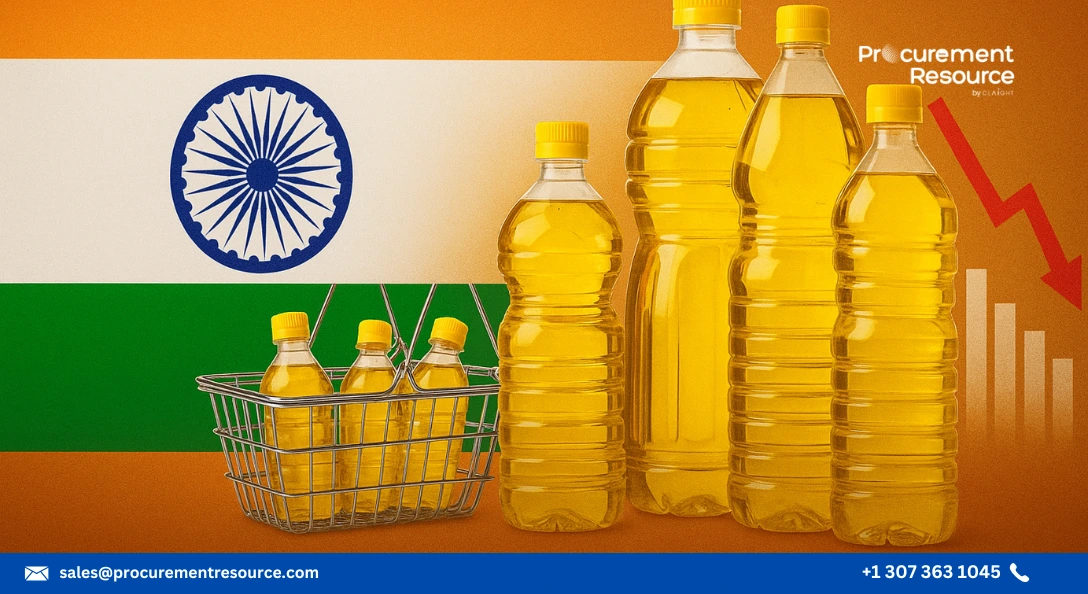Cheaper Imports Will Curb the Price Rise of Edible Oils During the Festive Season in India
.webp)
According to the Mustard Oil Producers Association (MOPA), a decline in import prices has decreased the mandi prices of edible oil seeds like soybean and mustard, urging the government to immediately remove limits of stockholding on edible oil and oil seeds. These restraints have struck oil seeds processing.
The landed palm oil costs (at Mumbai port), accounting for a 60 percent share in the edible oil imports of the country, have dipped to USD 930 per tonne by 36 percent on October 7, compared to the previous year's USD 1,453 per tonne.
According to the general secretary of MOPA, Krishna Kumar Agarwal, the mandi prices of mustard and soybean oil have been impacted by the cheaper palm oil imports within recent months.
Request Access For Regular Price Update of Palm oil
Within the previous four months, edible oil imports have witnessed a price drop of 40-45 percent; noted by MOPA, the cost of soybean seeds, trading at about `9,500/quintal a year ago, is currently selling at `4,500/quintal. Likewise, the prices of mustard seeds are around '6,000/quintal currently in contrast to the previous year's `8,500/quintal. Lower costs admitted by farmers could possibly prevent their switch to the cultivation of oilseeds.
To curb the price rises, on April 1, the government raised edible oils and oilseeds stock limits till December 31, 2022.
Starting from October 2021 till March 31, 2022, stock-holding limits on edible oils and oilseeds were imposed by the government. Nevertheless, a number of stock limits of oilseeds and edible oils remained with the state and Union Territories to be divided on the basis of their respective consumption pattern.
In terms of the stock holding limits, retailers are able to own around 30 quintals of edible oils only, along with 100 quintals of oilseeds. In contrast, wholesalers can hold up to 2,000 quintals of oilseeds and 500 quintals of edible oils in a given period.
Edible oils processors are capable of stocking around 90 days of their storage capacities. In contrast, oilseeds processors can stock up to 90 days of edible oil production in accordance with the daily production capacity requirement.
As of now, bodies like MOPA, the Solvent Extractors’ Association of India, and the Central Organisation for Oil Industry and Trade (COOIT), with several other farmer-producer organisations, have demanded the dismissal of the ban on the futures trade that was imposed on edible oil in December 2021 in order to guarantee price discovery mechanism as well as risk management.
In its communication to the finance ministry, COOIT newly stated that the Kharif crops harvest would begin in the upcoming few months, and several commodities would be arriving at the mandis without the futures markets being present; there will be an absence of the reference price, which will make spot markets operations difficult.
Read More About Palm Oil Cost Reports - REQUEST FREE SAMPLE COPY IN PDF
India depends heavily on edible oil imports, as about 14 million tonnes (two-thirds) of the total annual consumption estimate of 22 MT is met via imports. Approximately 8 MT of palm oil gets imported from Malaysia and Indonesia, whereas other oil types like sunflower and soya are imported from Brazil, Russia, Argentina, and Ukraine.
As per Procurement Resource, the mandi prices of edible oil seeds like soybean and mustard have decreased due to a decline in import prices, nudging the government to eliminate stockholding limits on edible oil and oilseeds.



